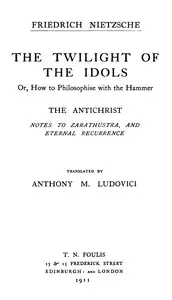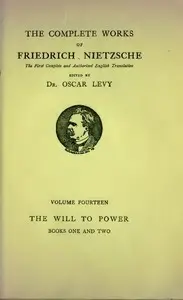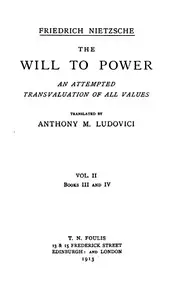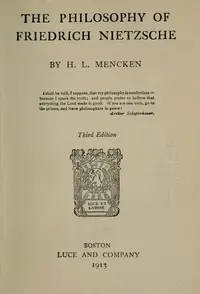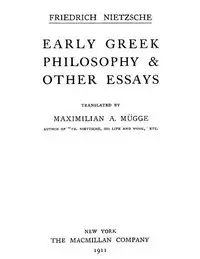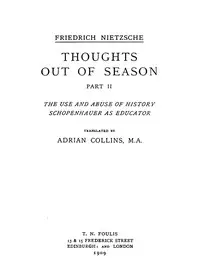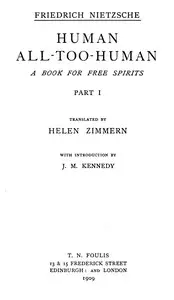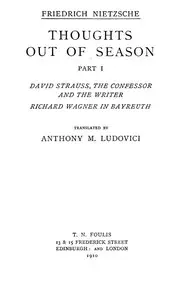"The Antichrist" by Friedrich Wilhelm Nietzsche is a late 19th-century philosophical work that intensely criticizes Christianity, viewing it as harmful to human nature's strength and values. The book looks at Nietzsche's idea of the "will to power," comparing it to Christian beliefs that, according to him, favor weakness and decay over strength and energy. It begins with a presentation of Nietzsche’s challenging philosophy, redefining good and evil concerning power. Dismissing modern virtues as fake and harmful, Nietzsche calls for a revolution in values, supporting strength, vitality, and individual greatness. He claims that Christian principles like pity and humility hold back humanity’s natural drive, causing a decline in both moral and physical health. Through strong statements and questions, the early chapters boldly challenge traditional moral ideas, showing Nietzsche's goal to shake the base of Western thought and morality.

The Antichrist
By Friedrich Wilhelm Nietzsche
A philosopher argues that traditional values are destructive, calling for a new system that celebrates strength and vitality over perceived weakness.
Summary
About the AuthorFriedrich Wilhelm Nietzsche was a German classical scholar, philosopher, and critic of culture, who became one of the most influential of all modern thinkers. He began his career as a classical philologist before turning to philosophy. He became the youngest person to hold the Chair of Classical Philology at the University of Basel in Switzerland in 1869, at the age of 24, but resigned in 1879 due to health problems that plagued him most of his life; he completed much of his core writing in the following decade. In 1889, at age 44, he suffered a collapse and afterward a complete loss of his mental faculties, with paralysis and probably vascular dementia. He lived his remaining years in the care of his mother until her death in 1897, and then with his sister Elisabeth Förster-Nietzsche. Nietzsche died in 1900, after experiencing pneumonia and multiple strokes.
Friedrich Wilhelm Nietzsche was a German classical scholar, philosopher, and critic of culture, who became one of the most influential of all modern thinkers. He began his career as a classical philologist before turning to philosophy. He became the youngest person to hold the Chair of Classical Philology at the University of Basel in Switzerland in 1869, at the age of 24, but resigned in 1879 due to health problems that plagued him most of his life; he completed much of his core writing in the following decade. In 1889, at age 44, he suffered a collapse and afterward a complete loss of his mental faculties, with paralysis and probably vascular dementia. He lived his remaining years in the care of his mother until her death in 1897, and then with his sister Elisabeth Förster-Nietzsche. Nietzsche died in 1900, after experiencing pneumonia and multiple strokes.

